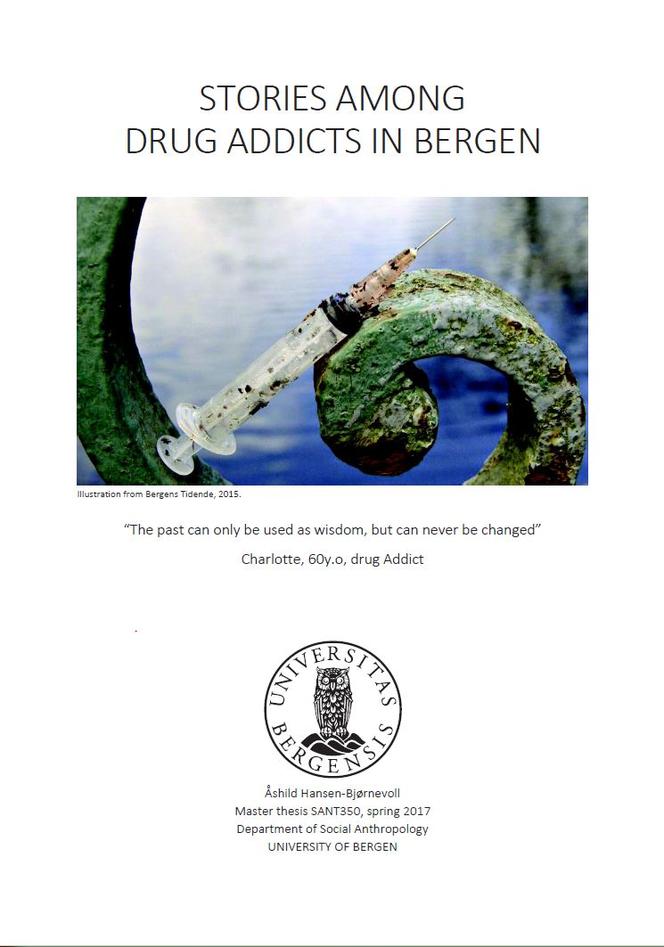Stories Among Drug Addicts in Bergen
Main content
Master's thesis submitted at Department of Social Anthropology, spring 2017
By: Åshild Hansen-Bjørnevoll
Supervisor: Associate Professor Mary Bente Bringslid
To live a life is a constantly evolving project, where we develop and change from being to becoming, something new or a different version of who we were or want to be. We are all some version of a storyteller, but there are various factors that makes us emphasize and tell our stories in certain ways, based in part on how we construct identities and maintained them through plans, choices and actions. There is an intrinsic dynamic in this identity construction between our autonomy – “our self”, and our surrounding – the society. In this study there is a focus on a particular group of individuals in Bergen, Norway, who are living with, or have lived with an independence, i.e. addiction. In the unpredictable way that many (drug) addicts live, it is indicated that they come to rely on external bodies as important aspects to their everyday hustle and bustle, and incorporate it in their lives and stories.
In this master thesis I wish to analyze the construction of human agency and subjectivity, with a narrative analysis-method, and explore if there is a rootedness in time, place and personal experience in the stories told by addicts. To create an understanding of this, I chose to focus on how (drug) addicts narrate and express their experiences and addictions through storytelling. How the individuals share their stories, construct and maintain identities were captured as I conducted fieldwork in Bergen, Norway. Where I gathered material through observations and informal interviews for six months. From the material collected I hope to be able to share an understanding of what templates and parts of a story is emphasized, and what constitutes ‘a good story’. Further it was necessary to analyse imaginations of normality, key events, key locations, group dynamics and to a certain degree whether gender had a particular place in the social group of drug addicts.
“Personal narrative (…) is born out of experience and gives shape to experience. (…) Narrative and self are inseparable” (Ochs & Capps, 1996, p. 20).
